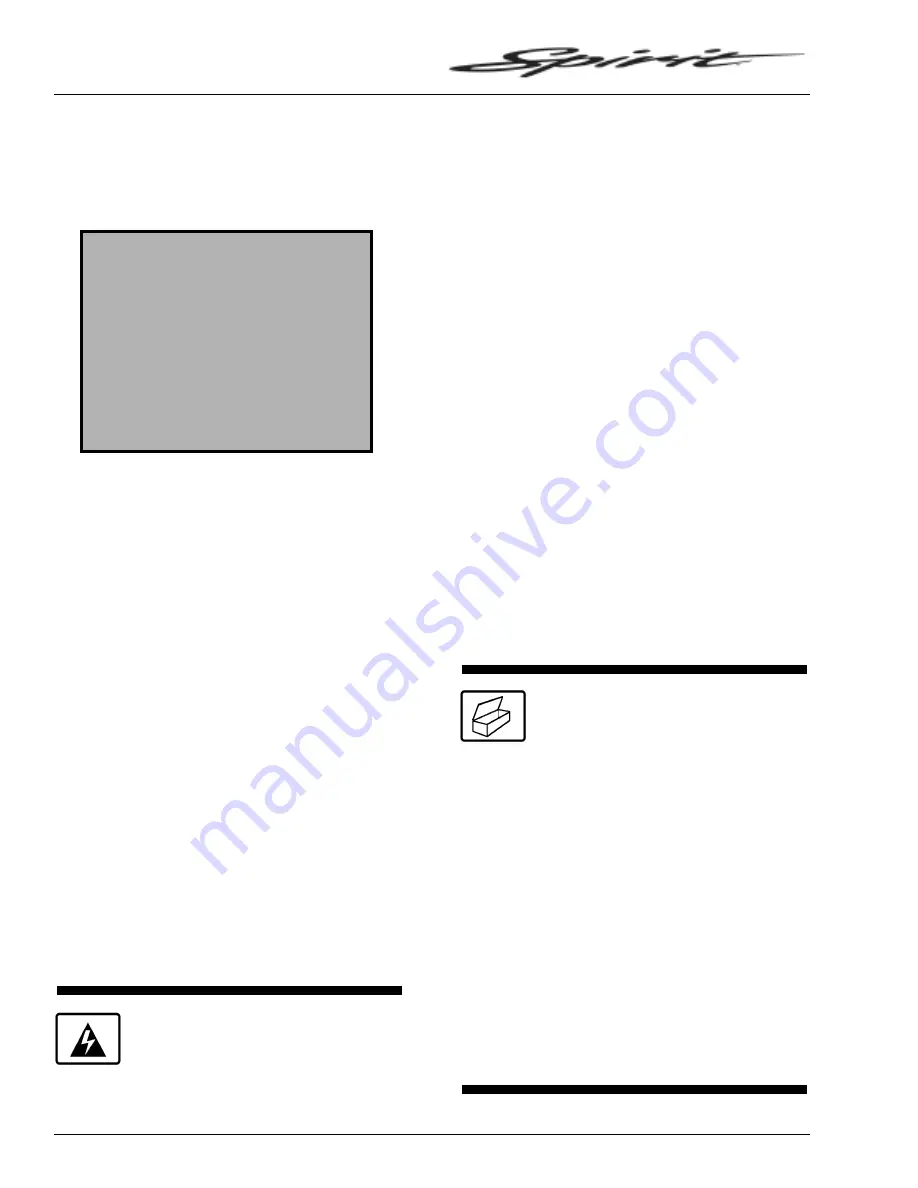
SECTION 1
SAFETY PRECAUTIONS
1-4
vapors for months after they are applied. They
are easily activated by high temperatures. If you
close up an RV coach on a hot day, the chemicals
used in its construction may be detected for
months after the coach was manufactured.
Power Connection
The gas alarm is powered by the coach batter-
ies. If the battery cable is disconnected from the
batteries, auxiliary battery switch is shut off, or
the circuit breaker is tripped, the alarm will not
work. The LP gas alarm breaker is located on the
power converter breaker panel shown on page
6-6.
Because the LP gas alarm is connected direct-
ly to the auxiliary battery, it is always drawing a
small amount of current. Even though this current
draw is slight, it could drain the coach battery
during storage periods of 30 days or longer. We
recommend turning the auxiliary battery switch
off or disconnecting the battery cables from the
auxiliary battery during extended storage periods
to avoid discharge.
Further Information
See the manufacturer’s information entitled
“Your LP Gas Detector” in the InfoCase for
further instructions on nuisance alarms and care
and testing of the LP gas detector.
ELECTRICAL
·
Careless handling of electrical components
can be fatal. Never touch or use electrical
components or appliances while feet are bare,
while hands are wet, or while standing in
water or on wet ground.
·
Improper grounding of the vehicle can cause
personal injury. Do not plug the utility power
cord into an outlet which is not grounded and
do not adapt the plug to connect to a recepta-
cle for which it is not designed.
·
Do not attach an extension cord to the utility
power cord.
·
Be sure that all electrical appliances to be
used contain 3-prong plugs for proper
grounding.
·
Avoid overloading electrical circuits. Re-
place fuses or circuit breakers with those of
the same size and amperage rating only. Nev-
er use a higher rated fuse or breaker.
·
Use caution when handling or working near
electrical storage batteries. Always remove
jewelry and wear protective clothing and eye
covering. Avoid creating sparks.
LOADING
·
Store or secure all loose items inside the
motor home before traveling. Possible over-
looked items such as canned goods or small
appliances on the countertop, cooking pans
on the range, or free-standing furniture items
can become dangerous projectiles during a
sudden stop.
·
Be aware of GVWR, GAWR and individual
load limit on each tire or set of duals. (See
“Loading the Vehicle” in Section 4.)
·
Never load the motor home in excess of the
gross vehicle weight rating or the gross axle
weight rating for either axle.
WARNING
Never use an open flame to test for
gas leaks. When testing for gas line
leaks with a soapy water solution, DO
NOT use a detergent containing
ammonia or chlorine. These sub-
stances may generate a chemical
reaction causing corrosion to gas
lines, resulting in dangerous leak con-
ditions.


































